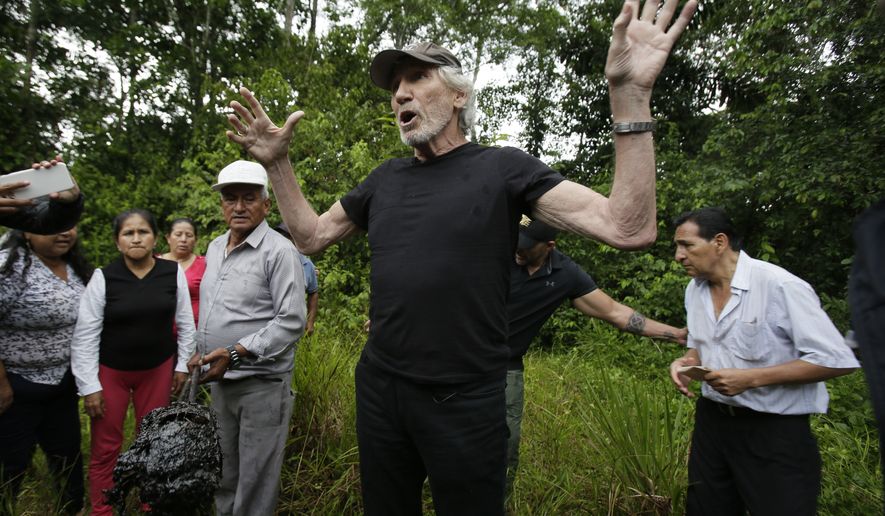Pink Floyd co-founder Roger Waters leveraged an appearance in Ecuador to lobby for President Lenin Moreno to continue shielding WikiLeaks publisher Julian Assange from U.S. charges, urging his administration to ensure the embattled Australian native avoids being extricated from Quito’s embassy in London and extradited abroad.
The British-born Rock and Roll Hall of Fame inductee and activist made the plea Tuesday during a press conference in Quito held while meeting with Amazonian settlers between tour dates.
“He needs to be protected,” Mr. Waters, 75, told reporters. “We cannot let the United States and the U.K. and all the other acolytes of the evil empire incarcerate this great man and kill him — which is what they will do.”
The musician’s comment came as uncertainties swell surrounding the WikiLeaks publisher’s future in the Ecuadorian Embassy on the heels of a recent court filing suggesting he was secretly charged by U.S. prosecutors and wanted for extradition.
Mr. Assange, 47, entered the Ecuadorian Embassy in 2012 and was subsequently granted asylum by Mr. Moreno’s predecessor, Rafael Correa, effectively shielding the WikiLeaks publisher from the threat of foreign prosecution. British authorities issued a warrant for his arrest after he entered the compound, however, and the risk of being apprehended upon leaving and extradited abroad to stand trial have precluded him from exiting, creating a lengthy international custody battle that took a new turn last week after a U.S. federal court filing indicated Mr. Assange was secretly charged under seal.
Mr. Moreno has repeatedly raised concerns about Mr. Assange’s residency inside the embassy since taking office in 2017, making the WikiLeaks publisher’s stay all the more uncertain in light of the latest developments in the U.S. government’s case against him.
Speaking about Mr. Assange’s situation Tuesday, Mr. Waters expressed a desire to meet with Mr. Moreno and plead his case, according to Agencia EFE, a Spanish-language news wire.
Quito did not immediately react publicly to the musician’s remarks.
Ecuador granted Mr. Assange asylum and citizenship in 2012 and 2017, respectively, but has claimed that the WikiLeaks publisher’s residency inside the embassy is conditional on him heeding certain recently imposed rules and regulations.
Mr. Assange sued Ecuador’s Foreign Ministry over the new terms and conditions last month, but a judge recently ruled in the government’s favor, prompting the WikiLeaks publisher’s lawyer to promptly appeal.
Attorneys for Mr. Assange have said their client fears he will be extradited to the U.S. if punted from the Ecuadorian Embassy and subsequently put on trial to face charges that may carry the death penalty, including possible counts of espionage.
Ecuador’s attorney general previously said that the U.K. has promised not to extradite Mr. Assange to any country where he risks the death penalty.
• Andrew Blake can be reached at ablake@washingtontimes.com.




Please read our comment policy before commenting.